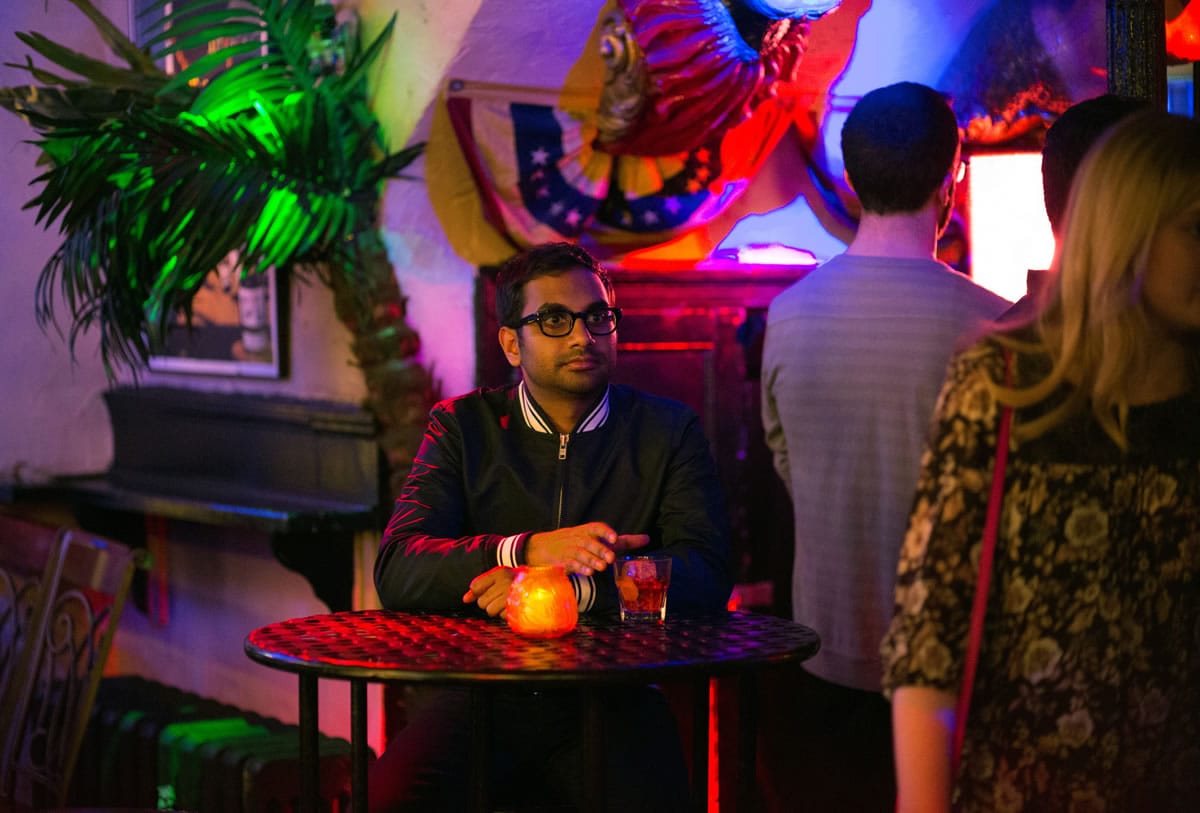NEW YORK — By one measure, Aziz Ansari has taken just a baby step with “Master of None.”
The new Netflix comedy series, whose 10 episodes premiered Nov. 6, arrives as the latest in a TV genre of stand-ups (think Jerry Seinfeld, Louis C.K., Jim Gaffigan) depicting versions of themselves both on and off the stage.
But “Master” is its own distinctive thing, thanks to the distinctive voice of Ansari — a top stand-up who can pack Madison Square Garden in addition to being a capable actor building on his seven-season run as pint-sized impresario Tom Haverford on “Parks and Recreation.” He also created, produced and wrote “Master” (in cahoots with fellow “Parks and Rec” alum Alan Yang) and directed two episodes.
Granted, the 32-year-old Ansari hasn’t strayed too far for his new character, Dev, a first-generation Indian-American and aspiring actor who lives in New York, where he has found moderate success doing TV commercials and spends his ample free time with a varied troupe of friends.
“There’s no big premise,” says Ansari. “I tried to make the series similar to stand-up in the way each episode deals with a particular topic: long-term relationships, elderly people, how Indians are stereotyped on TV. I’ve enjoyed all the acting work I’ve done, but, until now, only in my stand-up have I felt like I’ve been able to get out my voice.”
That voice is as bright as his sparkling eyes and luminous grin, and he imbues Dev with an open-minded attitude and almost childlike wonder.
In the series’ first scene, he faces a potentially disastrous mishap: His condom breaks while in bed with Rachel, whom he met hours earlier at a bar.
After a dash to the pharmacy for a morning-after pill, Dev spends the rest of the episode in an exploration of the pros and (many) cons of parenthood as he observes it among his friends.
Was that scene inspired by a condom crisis of his own?
“There’s been similar experiences in the bedroom that I’ve drawn from, sure,” he concedes. “I don’t think this show is autobiographical, and this guy is a few years less evolved than I am, I’d like to think. But there’s some overlap.”
An overlap item: Dev’s drolly grating ringtone was erupting from Ansari’s phone first.
But Ansari says that, in ways small and large, he wants his show to feel authentic as well as funny.
Before the bedroom scene was scripted, he recorded an improv conversation with Noel Wells, who plays Rachel.
“I said, ‘Let’s pretend we just had sex and the condom broke,’ and I used that to help us craft the dialogue.”
Along with putting out “Master of None,” this year Ansari joined forces with sociologist Eric Klinenberg to publish “Modern Romance,” a research-based meditation on finding love. What he learned has definitely informed “Master,” he says, “although I didn’t want to do what might be called a dating show.”
“Master” isn’t. Besides his amorous adventures with Rachel, Dev hangs with a crowd played by cast members including Eric Wareheim, Lena Waithe and Kelvin Yu. He also has an onscreen mother and dad, portrayed by Fatima and Shoukath Ansari (on hiatus from his regular job as a gastroenterologist), who happen to be the star’s real-life parents.
Ansari was raised in tiny Bennettsville, S.C., where, despite his minority status, he recalls being targeted no more harshly than were the fat kid, the new kid and other outsiders.
“My skin color and different background was just the thing kids made fun of when they made fun of ME,” he explains. “But for the most part, it was OK.”
He enrolled as a marketing student at New York University, where his future vocation suggested itself in the stories he’d spin for chums that kept them in stitches.
“They’d say, ‘You should do one of those New Talent nights at the comedy clubs,’ ” he recalls. “So I did one and I enjoyed it.
“But my voice as a comedian has continued to evolve into more complicated ideas: deeper stuff about race, my immigrant parents, police brutality. The real trick isn’t just making it funny, but getting the audience to think, ‘You’ve found a deeper insight that strikes a chord with me.’
“Once you develop a voice, you can share things that might seem specific to you. But they’re universal, and everyone will respond.”



